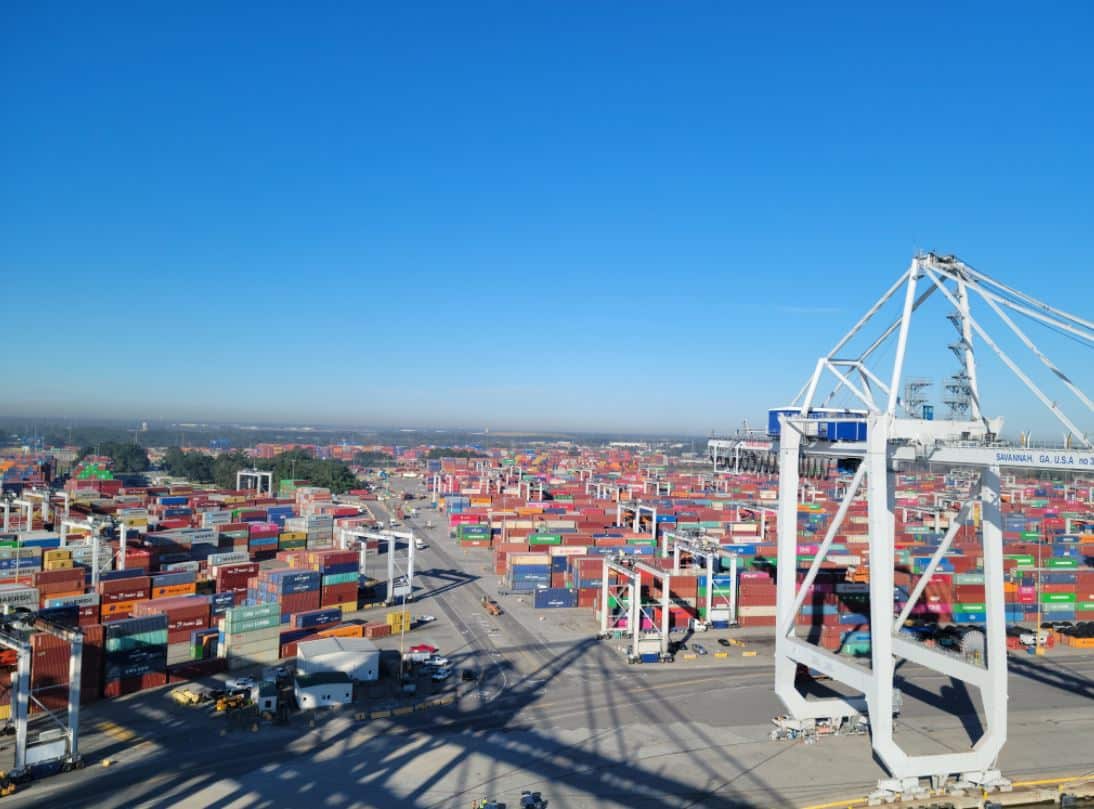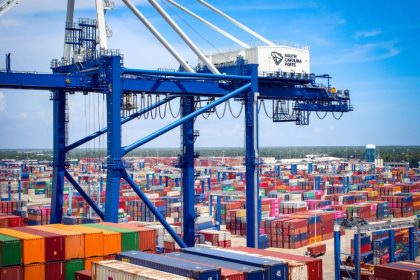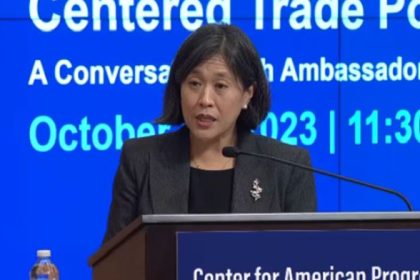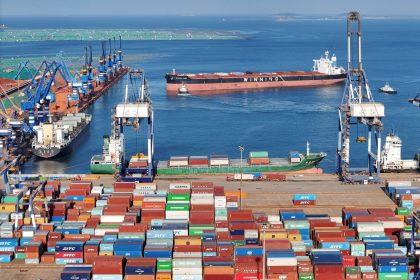Bordeaux Leading Bipartisan Effort to Make Supply Chain More Resilient

WASHINGTON — It’s easy to dip one’s toe into the 24-hour news cycle and suppose the breakdown of the nation’s supply chain for incoming and outgoing goods is a west coast phenomena.
The truth is, the backlogs have impacted ports of entry all along the U.S. East, West and Gulf coasts.
In Savannah, Georgia, home to one of the nation’s premiere and busiest ports, the yard at its primary Garden City terminal was jammed with nearly 80,000 shipping containers last week — about 50% above normal.
In addition, port officials said there were some 22 vessels at anchor at present, most of them 17 miles offshore in the Atlantic, given the port of Savannah’s location upriver from the coast.
Speaking to The New York Times’ Peter Goodman, for an interview used in part in the newspaper’s The Daily podcast, Griff Lynch, the port’s executive director said, “Nobody has gone through what we’re dealing with ever before. And so we are inventing this as we go along. There is no day that is the same.”
The travails of Savannah and the nation’s other ports are why Rep. Carolyn Bourdeaux, D-Ga., joined by Reps. Robin Kelly, D-Ill., and Adam Kinzinger, R-Ill., has introduced the bipartisan Supply Chain Act.
If enacted, the Act would create an Office of Supply Chain Resiliency and Crisis Response within the U.S. Commerce Department charged with monitoring the supply chains of critical goods and materials and responding to supply chain disruptions.
“COVID-19 showed us all how critical resilient supply chains are for consumers and businesses,” Bordeaux said in a statement last week.
“All across my district, small business owners and manufacturers have told me about the challenges they face in accessing basic materials critical to their products,” she said. “These disruptions harm businesses, their employees, and our local economies.
“My bill ensures we are better prepared to address these challenges and ensure American companies can keep doing what they do so well — build,” she added.
As outlined in the bill text, the office would coordinate existing efforts at Commerce, the Department of State and the U.S. Trade Representatives to promote diversified and resilient supply chains.
It would also be responsible for issuing a report on National Strategic Plan for Manufacturing and Industrial Innovation every four years which would include:
- Insights and recommendations to improve the security and resiliency of supply chains and to support the creation of jobs through the growth of American manufacturing;
- Guidance to relevant agencies with respect to critical goods and services, equipment, and technologies which should be prioritized; and
- Reviews and recommendations for expanding the sourcing of critical goods and services, equipment, and technology from allies or key partners of the United States.
The office would also work with private sector firms, encouraging them to consider doing more U.S.-based manufacturing and depend less on goods and supplies shipped from overseas.
Though the current bottlenecks in the nation’s supply chain are capturing headlines and driving up the prices consumers pay for a wide range of goods, Kinzinger said introducing the bill marks only “the first major step in the legislative process.”
“More work lies ahead as we consult with stakeholders and additional experts,” he said.
Dan can be reached at [email protected] and at https://twitter.com/DanMcCue.
























